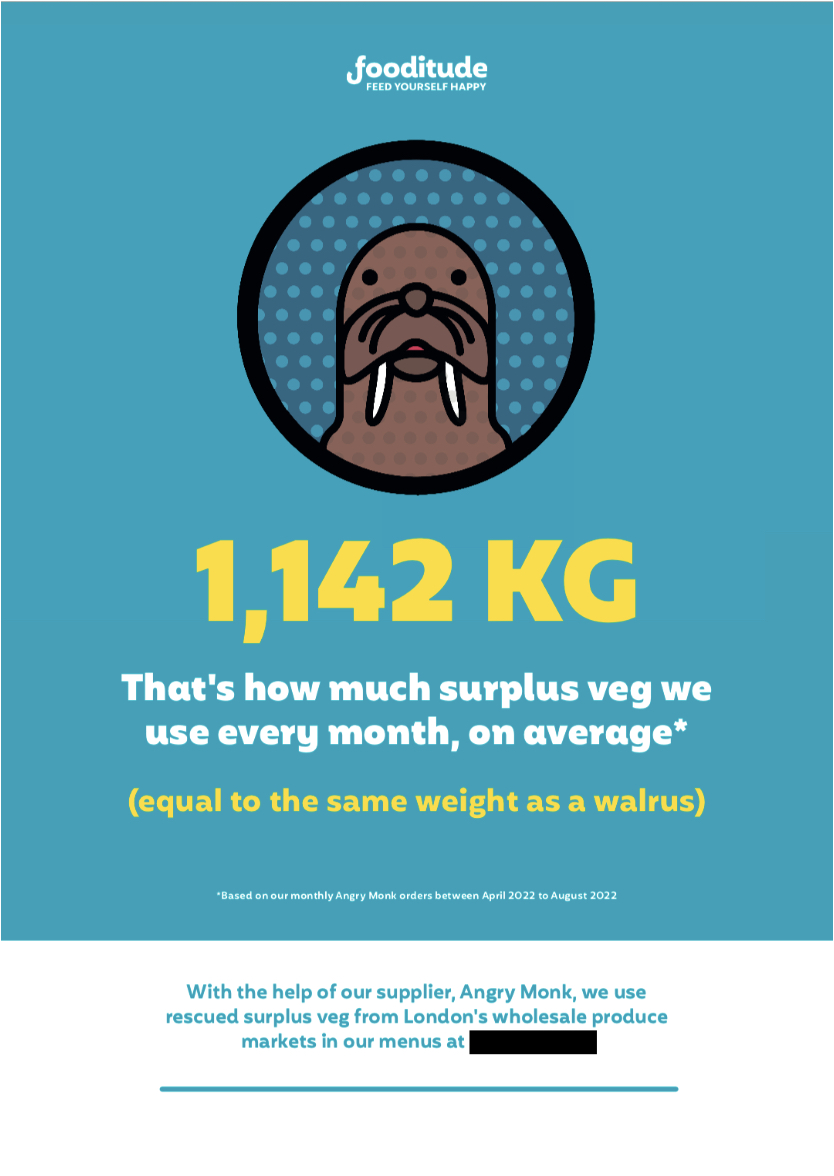The Four Workplace Sustainability Angles
A new report commissioned by Moneypenny and WORKTECH Academy has identified four different types of corporate approaches to sustainability, to help businesses establish...
Read Full Article
James Ricketts from Fooditude outlines the potential pitfalls of greenwashing and his tips on how to communicate sustainability in corporate catering.
James is a content manager at Fooditude, a delivered office catering company based in London. Day-to-day, you'll find him developing and managing Fooditude's marketing strategy. His areas of interest include workplace wellness and sustainability-to-marketing communications.

Picture: a photograph of James. Image Credit: Fooditude
"Greenwashing is about breaking trust. If your stakeholders and audience see your company's sustainability communications as exaggerated or unsubstantiated, there is a loss of credibility."
The Oxford English Dictionary definition of greenwashing is: “The creation or propagation of an unfounded or misleading environmentalist image.”
Communicating sustainability, done right, is valuable for people to hear. If a company ensures its CSR and ESG information is easily accessible, it equips its customers and stakeholders to make more informed decisions. Since 2022, I’ve seen an increasing amount of reports and articles published about how consumers are prioritising sustainability more than ever.
Greenwashing is about breaking trust. If your stakeholders and audience see your company's sustainability communications as exaggerated or unsubstantiated, there is a loss of credibility. The pressure is on businesses to rise to the challenge and provide leadership in tackling climate change and other environmental and social issues. Nowadays, choosing the “sweeping it under the carpet” approach to sustainability is perilous.
My role is to manage the marketing projects at Fooditude, a delivered catering company for workplaces. We work with lots of facilities and workplace managers and our sustainability often tops the agenda when they evaluate our service. Since I joined in 2020, I’ve learnt a thing or two about truthfully reflecting sustainability progress, challenges and ambitions. Much of what I have learnt over the years can be applied to communications for professionals working in facilities.
Here’s what I recommend to communicate your sustainability progress, challenges and ambitions:
Taking the effort to collect sustainability data, such as energy usage, and sharing your findings is great for transparency. However, finding an external professional body to report on your sustainability progress carries greater authority.
One of Fooditude’s leading accreditors is Planet Mark, which verifies its carbon footprint and helps demonstrate that emission reductions align with the UN Sustainable Development Goals. When reporting our CSR to clients and stakeholders, I quote directly from these reports to substantiate my claims.
The organisations you choose to work with are part of your environmental impact. For Fooditude and facilities management, suppliers are key to driving positive change. We can all contribute to an ethical and sustainable supply chain by carefully choosing who we source from. The success stories of sourcing well should be included in your communications and reporting.
For example, the chefs at Fooditude incorporate produce from Angry Monk into our menus. This supplier rescues surplus veg and fruit from New Spitalfields Market from being discarded as food waste. Furthermore, Angry Monk sends Fooditude reports with information about the overall weight of the surplus produce we’ve saved. I use this data to create signage at our client canteens to promote Fooditude’s food waste savings:

Picture: an example of one of Fooditude's client posters demonstrating food savings. It shows a cartoon-style graphic of a walrus and states that Fooditude uses 1,142kg of surplus vegetables each month on average (the weight of a walrus). Image Credit: Fooditude
Getting the right information from suppliers can help raise your profile as a progressive business or department. Trustworthy data received from suppliers can be used to back up your sustainability claims - and avoid greenwashing.
When I publish content about Fooditude’s sustainability, I check to make sure I’ve accurately reported the truth about the sustainability of Fooditude’s operation. But I’ve made mistakes in the past, and I’ve learnt from them.
In September 2022, Fooditude hired Anouk Dijkman to the team, who has been a huge help in ensuring Fooditude’s communications steer well clear of greenwashing. Here’s what I’ve learnt working alongside Fooditude’s sustainability manager:
Customers, stakeholders and employees will no longer be fooled by unsubstantiated hype from companies’ CSR claims. However, if your company is rising to the challenges and offering sustainable solutions, it isn’t greenwashing to share your success. In fact, doing so could inspire others to take sustainable action.
That being said, letting your audience know where you still need to improve sustainability is a good way to be transparent. As long as you back up your acknowledgement with a plan of action, most people will find an honest approach refreshing.
![]()
Picture: Image Credit: Image by Planet Tracker
Greenwashing is only the tip of the iceberg. A recent report by The Planet Tracker uncovered other ways that sustainability can be miscommunicated, from greenshifting to greenhushing. The more I discover about sustainable communications, the more daunting it can seem.
However, there’s comfort in the fact that we’re all in it together. As long as we set ourselves the goal of being transparent in how we talk about our CSR - we begin a dialogue in which we can build a more responsible approach to catering, facilities management and business. After all - feedback isn’t something to be feared, but an opportunity to find out where we can improve.
Picture: a photograph of a group of people filling plates with food from a buffet. Image Credit: Fooditude
Article written by James Ricketts | Published 21 February 2023
A new report commissioned by Moneypenny and WORKTECH Academy has identified four different types of corporate approaches to sustainability, to help businesses establish...
Read Full ArticleESG risk management provider Alcumus has launched a first of its kind, standards-based ESG product solution for businesses. This comes as the UK Chancellor sets new...
Read Full ArticleThisWeekinFM Partner Planet Mark explains how greenhushing can have the same adverse effect on an organisation as greenwashing. The crackdown on greenwashing by...
Read Full ArticleDisposable plastic items including cutlery, plates and polystyrene are to be banned in England, as a result of the proposal put to consultation last year. The...
Read Full ArticleA new report from the Women and Equalities Committee calls for a Menopause Ambassador to provide support and guidance for the workplace. The cross-party House of...
Read Full ArticleThe Sustainability Tool, a software application designed to help organisations and their supply chains measure and monitor their sustainability performance, has launched...
Read Full ArticleFrom 2024, large companies will need to publicly disclose information on the way they operate and manage social and environmental risks. Watch the...
Read Full ArticleThisWeekinFM attended Bristol’s Paintworks for The Festival of Sustainable Business 2022, finding out about different approaches that can future-proof our...
Read Full ArticleHarrods, the Knightsbridge luxury department store, has solved one of its biggest FM challenges by diverting tonnes of its used paper hand towels from general...
Read Full ArticleBeekeeping is an increasingly popular way for city-based businesses to demonstrate their commitment to promoting biodiversity, but as Alison Benjamin...
Read Full Article